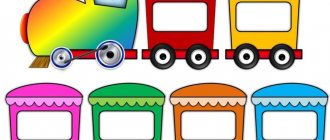A fascinating journey through the land of etiquette
Scenario of educational event on etiquette and culture of behavior
Performed:
teacher Kuznetsova T.F.
Validity of the relevance of the methodological material
In modern society, for a person to exist successfully, it is necessary to comply with the rules of behavior accepted in certain social circles.
The topic of student behavior culture is undoubtedly relevant, since currently there is a significant lack of morality among children, adolescents, and sometimes adults. Human cruelty, arrogance, and indifference are giving rise to an increasing number of conflicts in society. In this regard, the relevance of studying etiquette as rules of behavior accepted in certain social circles is beyond doubt. It is in childhood that the skills of cultural behavior are laid, which the child will then carry throughout his life. Goal:
increasing the cultural level of students, introducing them to moral and cultural values, contributing to the formation of positive personal qualities of students, creating a positive climate in the team.
Objectives:
- summarize such concepts as “Etiquette”, “Politeness”, “Magic words”, introduce children to the history of etiquette;
teach practical skills of behavior in the theater, at a concert, in a cinema; - develop communication skills, culturally confident behavior of children in a variety of life situations, correct application of etiquette rules in practice; - cultivate respect for the personality of another person, polite attitude towards each other, the ability to live in a team. This event should be preceded by preparation, including joint creativity between children and the teacher. 1) Distribution of assignments:
prepare a concert number, rehearse performances;
select those responsible for voicing the event and assisting the presenter. 2) Things that precede the main one and focus on it:
prepare posters and pictures with illustrations for the theme of the event;
prepare medals - “Expert of Theater Etiquette”, “Most Active Participant”, gifts for participants. 3) The role of the educator:
the educator thinks through the entire event, develops a scenario for the event, is its leader, and carries out preparatory and rehearsal work.
Equipment
Posters “Good word, what a clear day”, “Politeness is a coin that costs nothing to the giver, but gives pleasure to the receiver.
Eastern wisdom". Visual aids: map of traveling around the country Etiquette; illustrations displaying information on the history of etiquette, rules of etiquette in the theater and at a concert. Poster with evaluative statements. Costumes for the game: impromptu theater “Bremen Town Musicians”. Medals for “The Most Active Participant”, “Expert in Theater Etiquette” Tape recorder or music center. Taking into account age-specific individual characteristics, interests, and requests of children:
since children study in a theater studio, passively and actively participate in productions, they need to know the rules of etiquette in the theater and at a concert.
During the event, it is necessary to take into account the differences in children's temperament, age characteristics of children, as well as health and development characteristics. Expected results
Children will understand the meaning of the word “Ethics”.
They will learn new things from the history of etiquette and become acquainted with the norms of behavior in different countries of the world. They will understand that the basis of many rules is the respectful attitude of people towards each other. Learn the peculiarities of etiquette in the theater, cinema, and at a concert. The main result will be the ability of children to apply acquired knowledge and skills. Brief description of the topic, characteristics of methods, means and forms of work Topic: “An exciting journey through the country of Etiquette” Form of implementation:
complex event with elements of games, competitions, psychological training games.
Timing:
60 minutes.
The proposed educational activity on etiquette is based on game technology of training and education, technology of cooperation and co-creation. Gaming technology is characterized by the presence of game scenarios, role-playing games, entertaining elements, management of emotional stress, and expected results. Methods and techniques used
| Spheres of personality | Education methods | Forms and techniques |
| Emotional | Suggestion | Ethical conversation, story, conversation, clarification. Speech: word, intonation, pause. Non-verbal: facial expressions, gestures, setting, artistic image |
| Motivational | Stimulation | Encouragement: praise, approval, gratitude, reward. Punishment: reprimand |
| Motivation | Advice, advance payment, practical assistance, demonstration, analysis, attitude | |
| Self-regulatory | Behavior correction | Example: real, literary Self-esteem, mutual assessment, self-control, self-analysis |
| Analysis of activity and communication | KTD, reflection | |
| Existential | Dilemma method (joint discussion of moral dilemmas: choose the lesser of two evils) | Reflection, discussion |
Applicable principles:
— the principle of visibility and accessibility
— conscious and creative activity — the principle of the strength of knowledge, skills and abilities. - joint activity, cooperation between the child and the teacher.
Scenario plan
1) Greeting. Subject message. 2)Greeting game. 3) What is “Etiquette”. Etiquette rules change over time. Etiquette in different countries of the world. Introduction to the concept of “Politeness”. 4) Shouting game - confusion. 5) “Bad advice.” 6) “Polite riddles” 7) Game “Polite-impolite.” 8) A story about etiquette in the theater and at a concert 9) Impromptu theater “The Bremen Town Musicians”. 10) Etiquette in the cinema. 11) Blitz tournament “How well do you know etiquette?” 12) Summing up the event. Awarding medals to experts and the most active participants. The children's assessment of their participation in the event.
Progress of the event
Calm music sounds Presenter:
Good afternoon, dear guys! We dedicate our meeting today to etiquette and politeness. Let's start it with a smile. Guys, smile at each other. Let a smile and a good mood be our helpers.
The guys are invited to form 2 circles (outer and inner), counting on the first and second and standing opposite each other. Game "Greetings".
Background music sounds
- (in chorus) Hello, friend!
- shake hands. - How are you doing here? - pat on the shoulder. - Where have you been? - they pull your ear. - I missed! - hands to heart. - You came? - spread your arms. - Fine! – hug, after which the inner circle moves to 1 person. I. Etiquette and politeness.
First of all, let's think together about what etiquette is.
The children answer.
The teacher summarizes the children's statements. Etiquette is the rules of behavior.
This word has 2 meanings and is translated from French as: 1 meaning - label, label; 2nd meaning – ceremonial. It turns out that etiquette appeared a long time ago. It began in the form of customs and rituals in primitive society. Over time, the rules of etiquette have changed. Much of what was accepted, say, in past centuries, is now unacceptable. For example, previously there were no napkins, and dogs were allowed into the halls where knights feasted so that guests could wipe their hands on them. There was no such cutlery as a fork. When it appeared, it was called a “devilish instrument.” But the best traditions have been preserved for centuries. Etiquette may vary in different countries around the world. What is accepted in one country may be completely unacceptable in another. So a Tibetan resident, taking off his hat, sticks out his tongue and holds his left hand behind his ear, as if listening. Maori people touch their noses instead of greeting. The Japanese have three types of bows: low, medium and light. The Chinese, in former times, when meeting a friend, shook hands with himself; The ancient Greeks said to each other as a sign of greeting: “Rejoice!”, and modern ones say “Be healthy!” Arabs greet each other with the phrase: “Peace be with you!”, Navajo Indians: “Everything is fine!”, and Samoans sniff each other. Arriving at a Muslim's house. Don't be surprised if he kisses you on both cheeks - this is a national custom. Moreover, you must respond in kind. In Pakistan, people also eat with their hands, or rather, they only use their right hand. The left one is considered unclean and if it even accidentally touches food, the owner will order the dish to be taken away. In addition to special rules of conduct, each country has its own sign language. In Holland, turning your index finger at your temple means that someone has said a witty phrase. When talking about himself, a European will point to his chest, and a Japanese will point to his nose. Without knowing the traditions and customs, you can accidentally offend a representative of another country or find yourself in an awkward situation. Thus, Etiquette is the rules of behavior accepted in a given society and at a given time. — What does the word “politeness” mean? Children's answers.
The word “Politeness” comes from the Slavic word “vezhe” - expert, know. To be polite means to know how to behave. A polite person is always attentive to people. He tries not to cause them trouble, not to offend others by word or deed. There is the so-called golden rule of politeness, which says: “Treat other people the way you would like people to treat you.” Whatever the rules of etiquette, they are all caused by treating people kindly. Undoubtedly, many of the rules of etiquette are familiar to you. The game will help us remember them. Be careful.
A musical leitmotif sounds.
Shouting game of confusion.
At school, together, we will always tell the deuces only... And to the A's, it's no secret, we always say... We'll say thank you to mom for a bag of candies?... Shall we go to the buffet now, push everyone there?... Oh, what nonsense, crushing the flowers in the flowerbed... Will we easily throw candy wrappers past the trash can?... We forget sometimes “Hello” do we say? ... Will we be the elders and tell lies in response? ... Grandfather is riding next to us. Shall we give way? Shall we wash our dirty bike? Certainly…
If you come to see friends, don’t say hello to anyone.
Don’t say the words “please” or “thank you” to anyone.
Turn away and don't answer anyone's questions,
And then no one will say about you that you are a talker! If a friend invites you over for his birthday,
Leave the gift at home, it will come in handy yourself.
Try to sit next to the cake, don’t engage in conversations:
You will eat half as much candy while talking. When you get old, walk down the street.
Don't get on the bus - you'll still have to stand there.
And now there are few fools to give up their place to you,
And by those distant times there will be none at all! If an adult aunt comes to see dad or mom and is having some important and serious conversation, you need to sneak up behind her unnoticed, and then shout loudly, right in her ear: “Stop, give up! Hands up!" If your best friend slips and falls, point your finger at your friend and grab your stomach. Let him see, lying in a puddle, - you are not at all upset. A true friend does not like to upset his friends. If you get your hands dirty with salad at dinner, and are embarrassed to wipe your fingers on the tablecloth, quietly lower them under the table and calmly wipe your hands on your neighbor’s pants! Leading:
Guys, I guessed, these are residents of the country “On the contrary”.
Try to guess which etiquette rules were presented in reverse? There are beautiful and very useful rules of etiquette: give up your seat to elders in transport, do not interrupt the speaker. When making a request, say “Please.” Give thanks if they do something good for you. There are special polite words for this. They are also called “magic”. Polite riddles
1. Although the word is not simple, there is no wisdom here. We have heard this word “golden” since childhood. We say this word if we ask for something. We would like to ask someone else, so that we can be considered well-mannered. (Please) 2. Well, this will be a shorter word, although the price is High, and even very high, the words of this are always. We also know it from childhood, the secret is very simple, It’s like the sun is shining, starting with the letter that. This is a word of gratitude for good deeds, as if the sun brings clarity to our kind words. (Thank you) -Now let's talk about actions. If I talk about a polite act, you clap your hands. If not, stomp your feet. Game "Polite-Impolite"
Say hello when you meet. Pushing and not apologizing. Whistle, shout, make noise in the room. Give way to elders.
Come to visit without an invitation. When leaving, say goodbye. Having found out what etiquette and politeness are, we move on.
Leading:
The country of etiquette is huge. This map will help us travel along it. There are different types of etiquette. For example, business, diplomatic, military, pedagogical, medical. And we’ll talk about etiquette at a concert, theater and cinema.
A musical leitmotif sounds.
II. Etiquette in the theater and at concerts.
Usually the question immediately arises - what to wear to the theater or to a concert.
Not so long ago, when visiting the theater, replacement shoes were needed. Nowadays clothes don't matter much. At the same time, she should be elegant, but not provocative. Do not wear frayed jeans, stretched sweaters and T-shirts, tops that expose the midriff, as well as sports or youth clothing with holes and cuts. If you are going to a classical music concert, remember that classical music requires a classical costume. Of course, no one will stop you if you come in jeans, a sports T-shirt and sandals with bare feet, but this will be disrespectful not only to the artists, but also to those around you. Avoid strong perfumes and cologne. Illustration: drawing with young people in modern or beach clothes.
It is better to enter a theater or concert hall 10-15 minutes before the start.
Then you will have time to buy the program and calmly sit down in your seats. If your seats are in the middle of the row, try to take them early, without waiting for the third bell, and you will not have to disturb those sitting at the end. You need to go to your seat facing those sitting. Having noticed those walking along a narrow passage, you should not wait until they ask you for permission to pass, but get up in advance. Be sure to thank the polite people who stood up to let you through. When getting up and sitting down, try not to make noise. Lower the seat of the chair silently. It is impolite to occupy both armrests, as your neighbor may also want to lean on them. Do not lean on the back of the front seat or rest your feet on it. You should not look at the audience through binoculars and tell them the content of the play. There are 3 bells given at the start of the performance. After the start of a performance or film, you need to stop all conversations. The interrupted conversation can be continued during the break or after the performance. Don't forget to turn off your cell phone ringer. It happens like this: the start is delayed, and the audience begins to applaud in order to hurry up the artists. Is it correct? No. If the start is delayed, then unexpected problems have arisen. Once they are resolved, the action will immediately begin. So the curtain opened. And again the question is, should we applaud at this moment? There are also rules for applause. So, it is customary to applaud
: If after the curtain rises you need to express admiration for the work of the artist and director. At a concert: during the appearance of the conductor and soloists; When a famous singer, musician, or popular actor comes out in recognition of his talent; After performing the largest and most difficult arias in opera; In the theater after the end of each act and the entire play, at a concert after each concert number, section and the entire concert;
No need to applaud:
during performance or acting; between individual parts of a musical work. Musical works consisting of several parts are not interrupted by applause. Therefore, during a concert you need to be especially careful not to start “giving thanks” too early. To do this, you should carefully read the program before the concert. If a piece of music consists of four or five parts, then after the performance of each part there is a short pause, while the conductor does not turn to face the audience, and the soloist does not get up from behind his instrument. It is not customary to clap during these pauses; they applaud only at the very end. If you have trouble distinguishing the parts and are unsure whether to clap, keep an eye on the more experienced spectators around you. After the entire piece has been performed, the conductor turns to face the audience and signals the orchestra to stand. Or the soloist stands up and bows. Also shouts of “Bravo!” are valid only after the entire piece has been performed. At the same time, flowers are presented to the soloists or conductor. But at a jazz orchestra concert, you can applaud after the soloist has performed his part, even if the orchestra continues to play. You can applaud the singer at the beginning of the performance if he starts singing at the request of the audience, in gratitude, but, as a rule, this applause is short-lived. It is indecent to accompany applause with exclamations and stomping. During a play or concert, try not to disturb your neighbors. You should not talk or comment on what is happening on stage. Even if the performance turns out to be uninteresting, you must sit silently or leave the hall, preferably during a break. Whatever inspires the audience, under no circumstances should you stand up, kick time, sing along, or talk. Do not drum your fingers, beat time with your feet, sing along, click the lock of your purse, or rustle with candy wrappers, chocolate foil, or the program. It is considered a sign of bad taste and ignorance to sing along, clap your hand, or tap your foot to the beat of the music (unless the artist asks you to do so). And even more so, it is inadmissible to eat anything at this time. All food and drinks are excluded during the concert, please save them until the break. If you have a cough or runny nose, try not to cough or blow your nose in the gym. You should quietly apologize to your neighbors and leave the room. If you notice that the actor made a mistake, do not express your indignation out loud. Noise in the halls of philharmonic societies is treated even more critically. Therefore, you need to take all measures not to interfere. You can enter or leave the hall only between numbers, and in no case during the performance. The break in the theater is called "Intermission". During intermission, you can get up from your seats and walk around the theater. Looking at people walking in the lobby, much less making comments, is considered indecent. During the intermission you can go to the buffet. Of course, you can only eat in the buffet; eating or drinking in the lobby is a violation of etiquette. It is also undesirable to be late after the intermission - if you did not have time to get to your seat before the curtain goes up, sit in any free seat or return to the exit without disturbing others. The most serious mistake and serious violation of the norms of theatrical etiquette is considered to be leaving the auditorium during the continuation or a few minutes before the end of the performance. A polite person and a grateful viewer will certainly wait for the moment when he can thank the actors or musicians for their performance with thunderous applause. When the applause begins, the soloists or orchestra leave the stage, the curtain closes. If the applause does not stop, they return to their seats and bow again. If the audience continues to applaud, the musicians may perform one or more short pieces. This moment is called the "encore". In this case, you need to sit in your seats, and not stand in the aisle or at the doors of the hall. And under no circumstances should you get up and go to the wardrobe before the end of the musical piece. After the performance, when the actors bow and the audience applauds, it is tactless to run to the exit. It’s better to wait until the curtain falls, the applause stops, and only then calmly go to the wardrobe. Guys, now let's move into the magical world of the theater and play a short performance. At the same time, do not forget about the rules of etiquette.
A musical leitmotif sounds.
Impromptu theater “Bremen Town Musicians”
(Participants are given roles.
The presenter reads the text, children insert their lines)
Donkey: I'm a horse in perspective! Dog: Woof! I get into fights for my friends first! Cat: Mur-meow! Suddenly I will become fat and important! Rooster: Ku-ka-re-ku! You can even hear it in Moscow! “In a neighboring village, the year before last, some peasant suddenly went crazy. He drove out all the living creatures that had been living side by side in the house for 15 years. And all these years lived with him in peace: a shebutnoy donkey: ... A dog that no longer growled: ... There lived an old robber who loved sour cream: ... In this company, the rooster was not out of place: ... The company quietly wandered along the road, the poor’s paws were tired , and legs. Suddenly a light appeared in the forest hut - the terrible robbers had a home there. And the friends began to discuss right there how best to scare the robbers. The dog was suddenly the first to quietly say: ... The donkey decided that he was not passive either: ... The cat was very afraid of the night ram: ... The rooster suggested scaring the robbers, driving them away with a loud cry. After all, if not he, someone will help his neighbors:... The animals quietly went to the hut, and loudly, they all shouted at once (at the same time shouting their words). The robbers instantly ran away from the house. Who lived in it? They are familiar to us. And they lived for many more years in a house in peace with a brave donkey: ... A dog that growled menacingly: ... And a subtle healer of homemade sour cream: ... And the main one is a rooster, he is not superfluous at all: ....
The musical leitmotif sounds again.
Leading:
Our journey continues.
And now we will learn how to behave in a cinema. Sh. Etiquette in the cinema.
We go to the cinema much more often than to the theater. And despite the fact that the atmosphere in the cinema is more democratic and less solemn, when visiting the cinema you should be guided by the same rules. You usually don't take off your outerwear in the cinema. If you have taken off your outer clothing, carefully, without touching your neighbor, place the coat on your lap. If you have a furry hat, you need to take it off. At a regular movie show, you should follow the same rules as in the theater: do not make noise, arrive before the start of the show, take only your seats, walk if necessary facing those sitting, do not chew, do not litter, do not leave before the end of the show. You can leave the hall only if the film does not at all live up to your expectations, while trying not to disturb others. At festival premieres and various film festivals, rules of behavior apply, as in the theater, including applause during and after the screening.
A musical leitmotif sounds.
Leading:
Our journey will end with the blitz tournament “Do you know the rules of etiquette?”
Let's split into 2 teams. To determine the winning team, we need a jury (select a jury from those present in the hall). IV.
Blitz tournament. 1. Is it possible to eat in the foyer or auditorium of the theater?
No. There is a buffet for this. 2. Is it necessary to applaud after the curtain rises? Yes, if you need to approve the decorations. 3. What can you see in the theater with binoculars? Only the stage. Looking at the auditorium and the audience is unacceptable. 4. Is it necessary to exchange impressions during the performance? No. This can be done during intermission and after the end of the performance. 5. How to walk along those sitting in a row to your place: facing them or with your back? Face and only face. 6. A smart, lively woman gets on the bus; Seeing her, a boy stands up next to her. A dialogue takes place. Sit down please!
-Well, what are you...Thank you...No need... -Sit down, sit down. I always give up my seat to older people. What is the boy wrong about?
7. Two girls, passing by a boy, scattered apples from a bag. They bent down and collected. The boy, watching carefully, says: “Pick it up over there, it’s rolled behind the chair
. What is the boy wrong about?
8. Etiquette says to thank even the smallest service. If a friend puts black pepper in your tea, and now helpfully offers his handkerchief, according to etiquette, should you thank him?
9. A polite Martian is no different from a polite earthling. Is it customary for Martians to greet their neighbors?
10. In the 16th century, high-ranking nobles, when greeting each other, bowed 17 times and jumped 16 times - according to the etiquette of that time. If you were in their place, would you respond to a stranger's greeting?
11. Petya and Sasha, who are the same age, don’t know each other yet, although they live in the same building. And every time they meet at his door, Petya politely makes way for Sasha, Sasha smiles, politely thanks and passes. Why do you think everything happens this way?
12. Among some tribes in Africa, it is customary to rub noses as a sign of greeting. Some nations bow, others stroke each other's cheeks. And in Europe, for many centuries, men have been greeting like this: they extend their right hand to each other and shake each other, always looking into the eyes. Where do you think this came from?
13. In a certain kingdom, in a certain state, there lives an unfortunate king: all his 13 smartest ministers speak together at all councils, so no one hears anyone and cannot really decide anything. Which rule of etiquette would you advise this king to make the First Law of his State?
14. Today Malvina gives another lesson in Politeness for Pinocchio: - If you meet Someone at the door of a small room, the first one to go through the door is the one who COMES OUT, and the second is the one who ENTERS... - I will not give way to every Someone!!! - Buratino shouts! Is he right? And why?
15. One day, on New Year’s Eve, a very well-mannered student of class 3 “B” was traveling to school in the same trolleybus with Zoya Stepanovna, the director. How should he behave when leaving the trolleybus, so that today the whole school will know about the polite men from 3″B?
16. Cinderella accidentally walked into the house of her beloved godmother - and suddenly the gatekeeper told her that today was her godmother’s birthday! What will a well-mannered Cinderella choose (after all, she forgot about her birthday and today will not have time to prepare a gift): - she will run away and give the gift later, saying that she was unwell that day; – he will run away and generally “forget” to congratulate him (after all, polite people wish Happy Birthday on their birthday! And especially to their relatives); – he will still come in – pretending that he doesn’t know anything; - will come in, congratulate you, give you a flower from a nearby clearing; – will he come up with something else? 17. A formidable knight in heavy armor stopped his horse at the threshold of the house. No one dared to come out to meet him - it was scary... He slowly dismounted, turned to the door, took off his helmet and entered: “Hey, masters! I brought you greetings from my relatives...” - and smiled, young and handsome... Since then, all men, entering the house with good intentions, what do they do? 18. Doctor Medunitsa called Znayka to tell him how useful it is to eat honey during frosts. According to etiquette, the person who called should end the conversation. What should Znayka do if he is in a hurry (for example, with Button in the cinema)?
A musical leitmotif sounds.
Summing up, presentation by the jury, awarding the teams.
Medals are awarded to “Expert of Etiquette in the Theater and at Concerts” and “Most Active Participant”. So, today we learned something new about etiquette in the theater, at a concert, in a cinema, during performances. And I believe that you guys will be the most polite, well-mannered, and tactful at any concert.
To make life easier for everyone, You don’t have to cry often, My friendly advice to you: Observe etiquette!
A musical leitmotif sounds.
3
Instill good manners by playing
Good manners are instilled in children from childhood: first by parents, then by educators and teachers. But the effect is small. Why?! Perhaps the whole point is that the rules of etiquette are taught in a too boring and edifying manner?!
Unwritten rules
The norms of etiquette, although they are described in various sources, are “unwritten” - after all, they are not enshrined in any law. This is a kind of agreement between people to behave in a certain way. Etiquette determines the rules of behavior of people in a variety of places and under a variety of circumstances: • when meeting people • at the moment of greeting and farewell • in public places (transport, road, festive events, museum, cinema, theater, circus, clinic, library, hairdresser, restaurant, etc.) • in a telephone conversation • how to behave at a party • how to receive guests • how to behave at the table • how to correctly write letters, respond to letters • communicate with strangers, friends, older people • use polite words (request , gratitude, sympathy) • choice of clothing and hairstyle for different events (dress code) • personal hygiene and health care • attitude to material values • concept of taste, beauty, fashion, style
Just listing the topics according to the rules of etiquette looks impressive. But you need to remember the rules for each topic and, most importantly, follow them. And, always. It is believed that the highest level of human culture is to observe the rules of etiquette even when you are alone, and no one can monitor whether you are observing etiquette or not. The question arises: how to instill such a high culture in children?
Morals on etiquette
Acquaintance with etiquette begins from early childhood, consciously - from the age of 5. How does this usually happen? Special classes are held in kindergartens and schools - lessons on ethics and aesthetics. And let the teachers not be offended by me, but they are, as a rule, boring, edifying, in a completely one-sided form of memorizing the rules. And what is the fate of all such moral teachings? We get the opposite effect - we don’t want to follow the rules.
This concerns the theoretical part on etiquette. How is etiquette practically taught? Even worse. I would even say, in violation of all the rules of etiquette. Shouts, punishments, dictates. “Don’t slam the door!”, “Wash your hands!”, “Sit up straight!”, “Take your elbows off the table!”, “Take your time, chew your food thoroughly!”, “Don’t talk with your mouth full!”, “Don’t slurp! ", "Cover your mouth when you sneeze!", "Give way to grandma!" And the most paradoxical thing in this series is this: “Why are you screaming like crazy?!” (naturally, indignant adults shout this phrase like crazy). All this would be funny if it weren't so sad.
It is not enough for children to say: “Do it this way and not that way.” It would be nice to explain why not otherwise. And it would be even better to instill the rules of etiquette not directly, but indirectly, gradually, so that the child himself would like to follow them.
Exactly the opposite
Grigory Oster once proposed a very unconventional way to instill good manners when he wrote “Bad Advice.” The idea of coming up with harmful advice instead of useful ones came to his mind for a completely understandable reason. Most often, children protest against everything that is advised to them and do the opposite. And if such children are given harmful advice, then by doing the opposite, they will do the right thing. Well, for example,
There is no more pleasant activity than picking your nose. Everyone is terribly interested in what is hidden inside. And whoever is disgusted to look, let him not look. We don’t get in his way, let him not pester him either.
If you come to see your friends, don’t say hello to anyone, don’t say the words “please” or “thank you” to anyone. Turn away and don’t answer anyone’s questions. And then no one will say about you that you are a talker.
If you get your hands dirty with salad at dinner and are embarrassed to wipe your fingers on the tablecloth, lower them unnoticeably under the table and calmly wipe your hands on your neighbor’s pants.
On the cover of this collection of poems it is honestly written “A book for naughty children”, and below there is a note - “Obedient children are prohibited from reading.” An amazing bait, don't you agree? Of course, there is another little trick: all the poems are written with an extraordinary, subtle sense of humor. Combining the contrarian method with a sense of humor is a good way to actually teach etiquette and ridicule ignorance, in this way clearly demonstrating how a truly polite and cultured person should behave and why it is bad to do otherwise.
Teddy bear etiquette
Once I observed such a scene in the nursery. My 5-year-old daughter was playing with her favorite teddy bear. She spoon-fed him and told him: “Please don’t slurp. This is not appropriate!" It is clear that the toy bear could not slurp, my daughter just wanted to teach him good manners. And, without knowing it, she gave me another idea on how to teach etiquette to children. In Game. With dolls and plush toys.
Children do not like to learn rules in class; they do not like to be told off and their behavior corrected (and even if this happens in a harsh form). But children are not against following the rules of etiquette. And they understand that living by the rules is more convenient for everyone. Children get bored with the same monotonous role of a student sitting at a desk. And I really want to feel like a teacher.
By playing with dolls and plush toys, children learn etiquette very readily. Adults can only throw up more and more new situations that will be played out in order to cover all cases in life where you need to know the rules of etiquette.
Playing by the rules of etiquette
Play is the best way for children to learn. And, of course, not only by playing with dolls you can teach children etiquette. You can teach children good manners through many different games, where (uniquely!) the rules of etiquette become the rules of the game!
SITUATION. For the game, ordinary everyday situations are selected: “Greetings and introductions”, “Telephone conversation”, “How to give gifts”, “How to behave in public transport”, “How to behave in an auditorium”. Invite children to create a story with and against the rules. You can suggest illustrating invented stories with scenes. Don't forget about your sense of humor.
TORN NOTES. The rules of etiquette are written on the notes so that they are formulated in two parts: conditions and correct behavior. Then all the notes are torn into 2 parts and mixed. Children need to restore the torn notes by correctly selecting the corresponding parts.
LETTERS OF HER MAJESTY'S COURTESY. Children write letters to each other (and maybe even adults) telling them whatever they want. The main thing is not to violate etiquette when presenting the content. Letters are sent by email. And the second stage - the recipient of the letter must evaluate it from the point of view of compliance with the rules of etiquette. Moreover, you can check two things in compliance with the rules of etiquette: by writing a letter and by behavior in the situations described in the letter.
DORITHMUY. Not a difficult game. Suitable for kids. Adults read the poem without finishing the phrase, and children add the necessary words at the end of the line. For example, Take part in the exchange of kind words and speak more often... (hello)
You need to know how twice makes two Everything... (magic words)
Don’t be afraid to say up to a hundred times a day... (please).
DIALOGUE WITH SUBTEXT. This game is usually very fun to play. It is based on Vadim Levin's poem "Mr. Snow". - Mister Snow! Mister Snow! Will you come visit again? - In one hour. I give you my word. - Thank you, Mr. Snow... This poem is universal in the sense that with the same text it can express completely different subtexts, including the exact opposite: delight, joy, restraint, indifference, disappointment, grief, fear, horror. Each child performs the poem, with others guessing the subtext and discussing the extent to which each reading was considerate of Mr. Snow.
Polite-bearish
They teach etiquette and works of art. Some directly, others in a more veiled form. Children read, become captivated by the plot, empathize with the characters, and between the lines they learn the rules of behavior. There are many wonderful creations that could be included in an etiquette book. Here are just the most popular: 1. “A very polite turkey” (B. Zakhoder) 2. “Politeness lesson”: A bear of five or six years old was taught how to behave... (S. Marshak) 3. “Moidodyr”, “Fedorino’s grief” (K. Chukovsky) 4. “The Tale of Lost Time” (E. Schwartz) 5. “The Little Prince” (Antoine de Saint-Exupery)
Theater of Good Manners
It is very useful to stage performances based on literary works with children. Etiquette and theater are inseparable. Firstly, all works, one way or another, teach etiquette in the broadest sense, namely the rules of communication between people - kindness, justice, tact, sympathy, friendship. Secondly, the historical background of any play reflects the etiquette of its time. Thirdly, when playing a role, the child lives according to the rules of etiquette if the role is positive, and against the rules if the role is negative. The experience of such living will give the child the opportunity to feel everything himself. Not to understand, not to know, not to memorize, but to FEEL. And this will best teach the child to follow the rules of etiquette.
For what, exactly?
Any theory without practice is dead. If your child communicates little, leads a secluded lifestyle, if you do not visit theaters, museums, cafes with him, if you do not like to visit or receive guests, then the situations in which the child will need to apply the rules of etiquette will be very limited, reduced to a minimum . Naturally, something that does not require use will reasonably be considered unnecessary by your child.
The task of parents is, first of all, to socialize the child’s life in the most optimal way. This will both develop it culturally and make the concept of “etiquette” vitally necessary. Children will observe the behavior of other people in different circumstances, see what is meaningful to others, and begin to look at themselves from the outside. They will no longer learn the rules themselves, but how to interact with other people according to these rules.
And most importantly! Parents, follow the rules of etiquette yourself. Necessarily. Even the most boring games will not teach children good manners if they do not have a worthy example to follow in your face. To ensure that your baby grows up to be a real gentleman or lady, be a gentleman or lady yourself.
Author: Inga Zayonts






